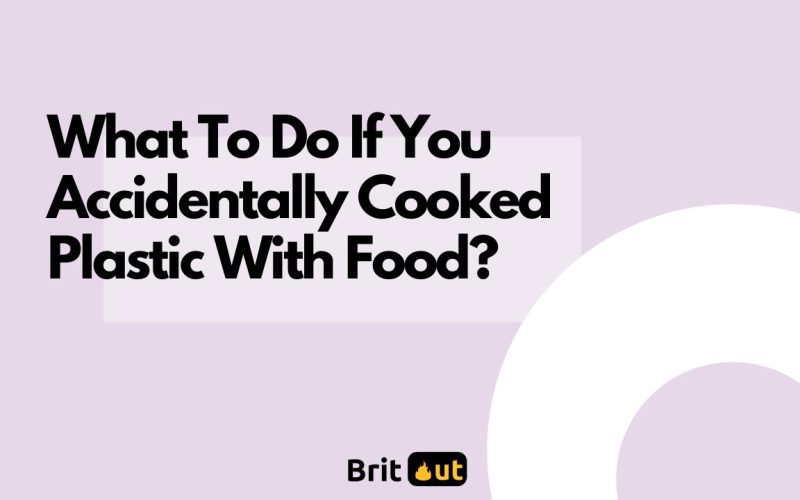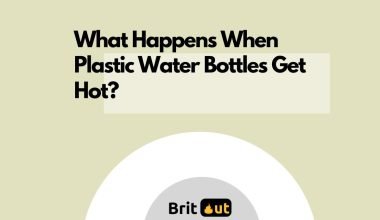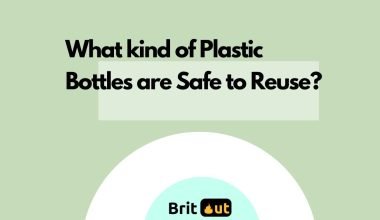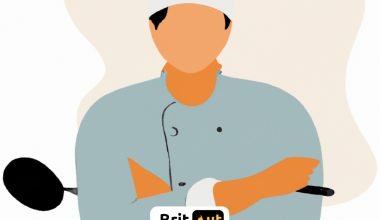Have you ever accidentally cooked plastic with your food? It’s a common mistake and one that can be quite alarming.
Plastic can release harmful chemicals when heated, which can be dangerous if ingested.
However, If you’ve found yourself in this situation, there are steps you can take to minimize the risk and keep yourself safe, which we’d be talking about in this article.
What To Do If You Accidentally Cooked Plastic With Food?
You’ve accidentally cooked plastic with your food – now what? While it’s not an ideal situation, there are steps you can take to minimize the risk and ensure that you stay safe.
First and foremost, if you notice that you’ve cooked plastic with your food, don’t eat it.
Even if it doesn’t look or smell like anything is wrong, plastic can release harmful chemicals when heated, and these can be dangerous if ingested. Instead, dispose of the food and the plastic.
If you’re not sure if you’ve cooked plastic with your food or not, there are a few things you can look for.
Plastic that has melted onto your food will usually look glossy and have a different texture than the rest of the food.
You may also notice a strange smell or taste.
If you suspect that plastic may have melted onto your food, it’s better to err on the side of caution and throw it out.
Once you’ve disposed of the contaminated food, you’ll want to clean your cooking area thoroughly to prevent any further contamination.
Depending on the extent of the plastic contamination, you may need to clean your entire kitchen.
At a minimum, be sure to clean the area where the plastic was cooked, as well as any utensils or cookware that came into contact with the plastic.
When cleaning up plastic contamination, it’s important to be careful not to spread the contamination around.
Use disposable gloves and paper towels to clean up the plastic, and avoid using sponges or other porous materials that could absorb the chemicals from the plastic.
After cleaning, be sure to dispose of any contaminated materials properly.
If you’re concerned about the potential health effects of plastic contamination, it’s always a good idea to consult a medical professional.
While most cases of accidental plastic ingestion won’t result in serious health problems, it’s better to be safe than sorry.
In the future, there are some steps you can take to prevent accidentally cooking plastic with your food.
Like using cookware and utensils that are safe for high temperatures, and never putting plastic containers.
What Happens If You Accidentally Cooked Plastic With Food?
Accidentally cooking plastic with your food is a common mistake that can happen to anyone.
But what happens if you cook plastic with your food?
The answer depends on a few factors, such as the type of plastic, the temperature it was exposed to, and how long it was in contact with the food.
In general, plastic that is exposed to high temperatures can release harmful chemicals, such as bisphenol A (BPA) and phthalates, which can be dangerous if ingested.
These chemicals can mimic hormones in the body and disrupt the endocrine system, potentially leading to a range of health problems, including reproductive disorders, developmental issues, and cancer.
The risk of health problems from accidentally cooking plastic with your food is generally low if the exposure is brief and limited.
However, if you’ve been regularly exposing yourself to plastic contamination over a long period, the risks may be higher.
The severity of the health effects will depend on a few factors, such as the age and health of the person, as well as the type and amount of plastic ingested.
If you experience any symptoms after accidentally cooking plastic with your food, such as nausea, vomiting, or diarrhea, seek medical attention immediately.
It’s worth noting that not all plastics are created equal.
Some types of plastic, such as polypropylene and high-density polyethylene, are considered safer for food use and are less likely to release harmful chemicals when heated.
Other types of plastic, such as PVC and polycarbonate, are more likely to release harmful chemicals when exposed to high temperatures.
To minimize the risk of accidentally cooking plastic with your food, it’s important to be aware of the materials you’re using in your cooking and food storage.
Avoid using plastic containers or wrap them in the oven or on the stove, and opt for glass or ceramic containers instead.
When reheating food in the microwave, use microwave-safe containers or cover the food with a paper towel instead of plastic wrap.
So, accidentally cooking plastic with your food can be a scary situation, but the risks can be minimized by taking appropriate action.
If you accidentally cooked plastic with your food, dispose of the contaminated food and clean your cooking area thoroughly.
And in the future, be mindful of the materials you’re using in your cooking and food storage to prevent any further contamination.
Conclusion
Cooking with plastic can pose serious health risks if not done properly.
Accidentally cooking plastic with your food is a mistake that can happen to anyone, but it’s important to be aware of the risks and take appropriate measures to minimize them.
If you accidentally cooked plastic with your food, it’s best to dispose of the contaminated food and clean your cooking area thoroughly.
To prevent future contamination, consider using alternative materials like glass or ceramic containers for cooking and food storage, and avoid using plastic wrap in high-heat situations.






